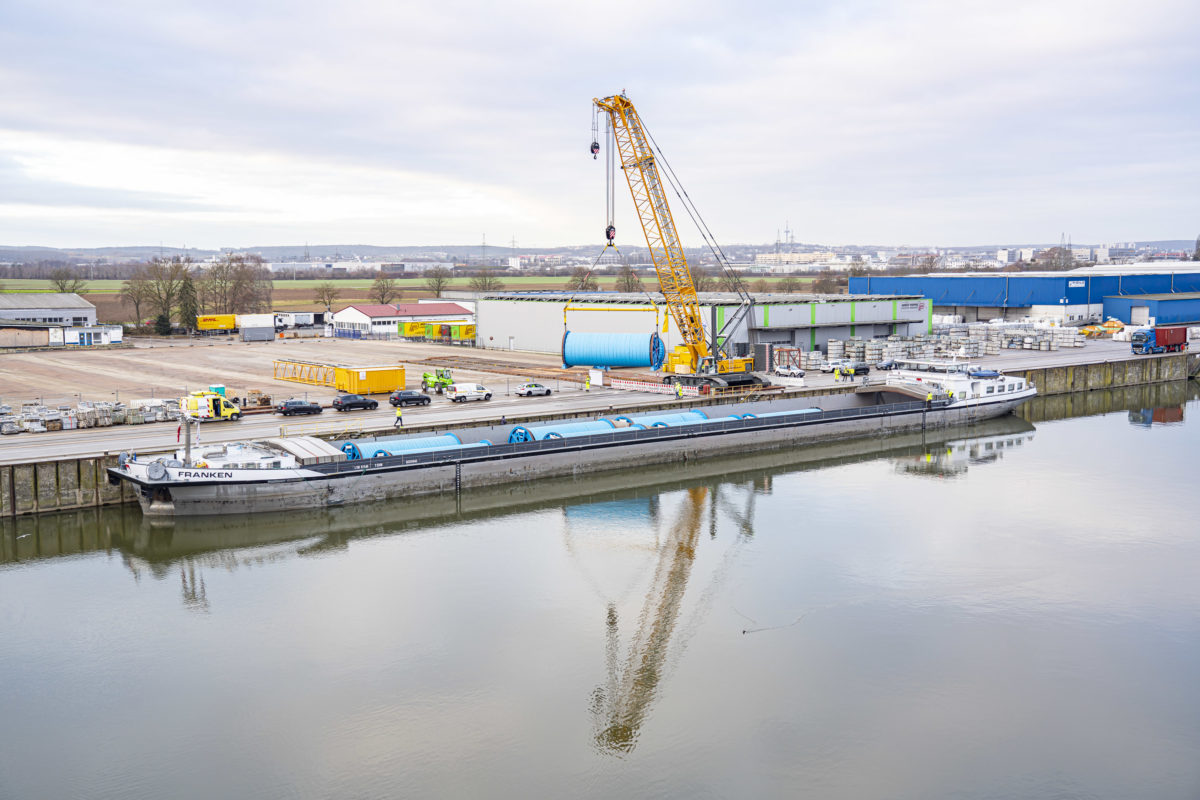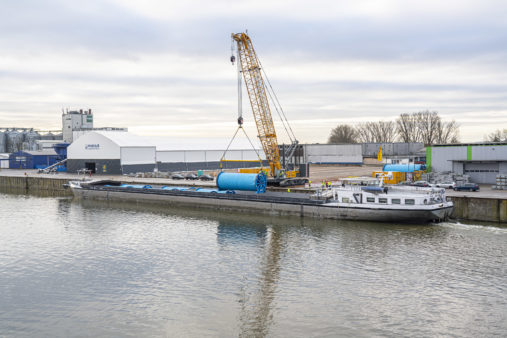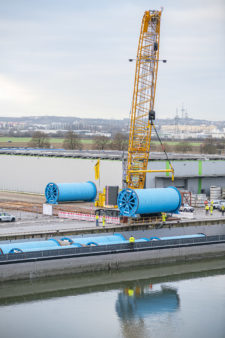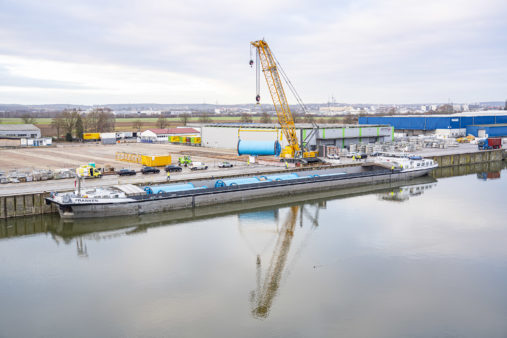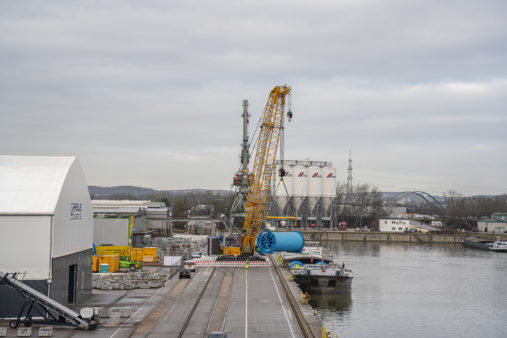24 January 2023 | Bamberg
bayernhafen sends clear signal with introduction of HVO
Bamberg is the launch pad for the changeover to green fuel
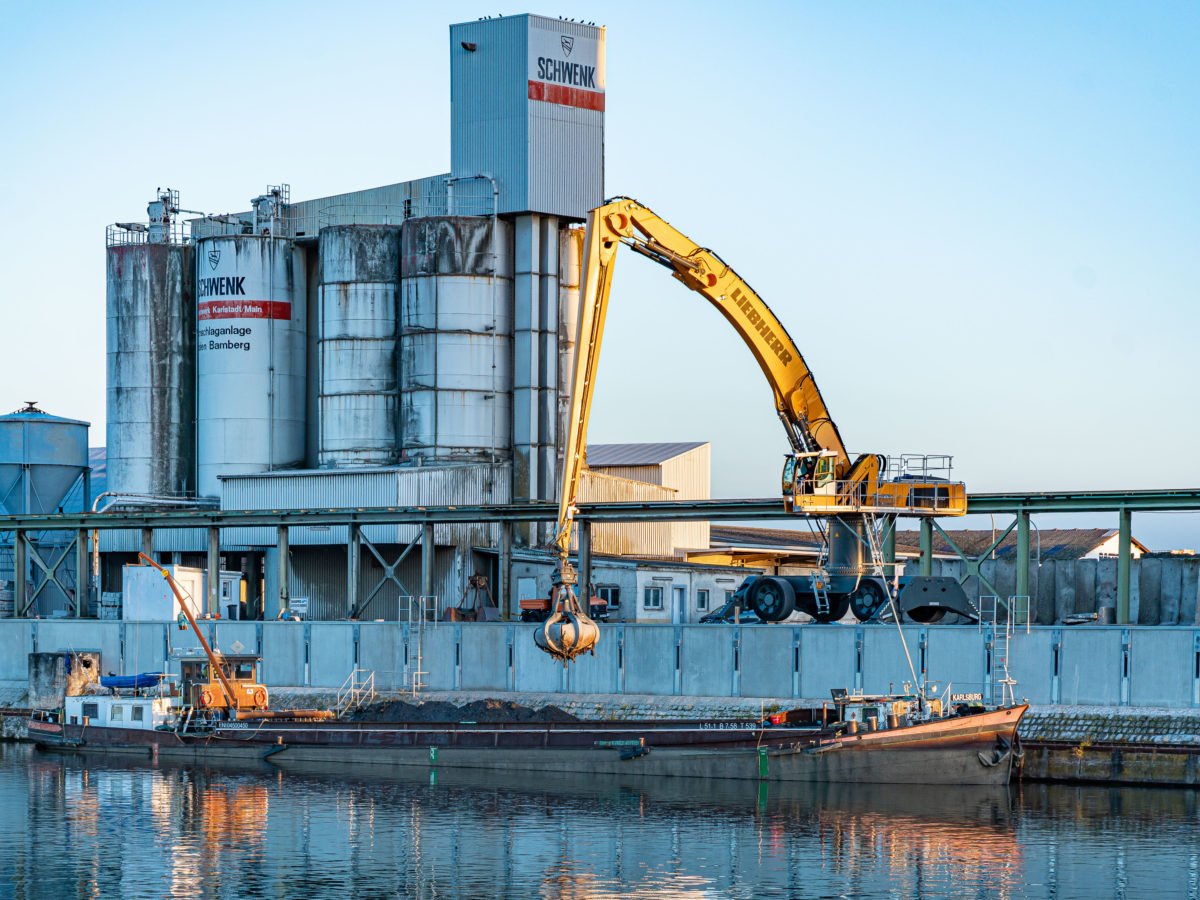
HVO-fueled LH110 handling cargo. Image source: bayernhafen / Michael Ziegler
Regensburg, 24.01.2023 – bayernhafen is taking an important step forward in sustainability to achieve a massive reduction in CO2 emissions through the successive conversion of its handling equipment to HVO fuel. The changeover started at the Port of Bamberg with the conversion of two Liebherr material-handling excavators to run successfully on HVO since the end of December.
“We have decided not merely to add HVO to diesel, but to completely rely on the more climate-friendly fuel. We want to make a conscious decision to demonstrate to our industry and the wider world that heavy-lift machinery can also be operated in a CO2-neutral form,” says Klaus Hohberger, one of the members of bayernhafen’s Management Board.
HVO stands for Hydrotreated Vegetable Oils, but is more typically called ‘hydrogenated vegetable oils’. This type of biofuel is capable of completely substituting conventional diesel, and approvals have already been received from a number of machinery and engine manufacturers to use it in existing engines. “Some manufacturers have already made great inroads in this regard. With others, we are still on the case. We have great potential here in Germany. We may even recoup the additional costs of around 10% compared to diesel through the lower AdBlue consumption in exhaust gas purification. This will mean our operating our machines will be both CO2-emissions free and cost-neutral compared to diesel,” adds Klaus Hohberger.
The basis for HVO is formed by vegetable oils and vegetable fats, which are then synthesized with hydrogen. The use of HVO reduces the total amount of harmful emissions in the life cycle of a machine by around 75%. CO2 emissions alone are half of those of diesel, with the only emissions being what the plant had previously absorbed, making our vehicles climate-neutral. Soot, nitrogen oxide and particulate emissions are significantly reduced, resulting in lower AdBlue consumption for exhaust gas purification.
The fuel consumption of the material-handling excavators in Bamberg is almost identical to that of diesel. This means a saving of around 23.7 tons of CO2 per year at the current requirement of 18,000 liters of fuel. bayernhafen has already made firm plans to extend HVO use to other locations and also assumes that the additional price will fall steadily as HVO use becomes more widespread.

